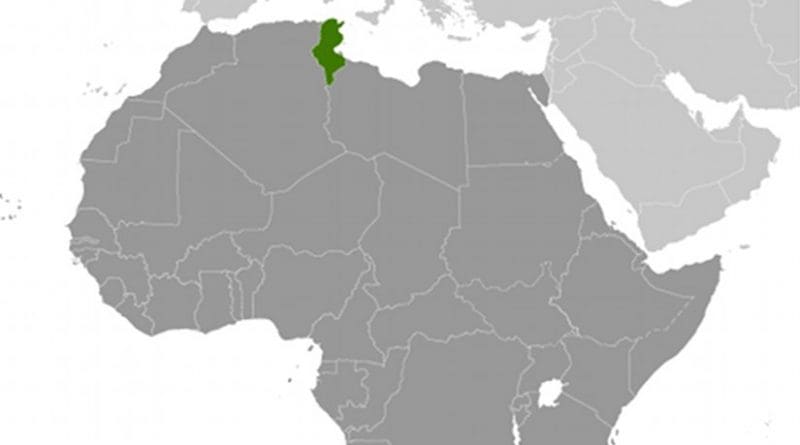Tunisians Call For Release Of Prisoners In Guantánamo – OpEd
On Wednesday, in Tunis, Reprieve, the legal action charity whose lawyers represent prisoners in Guantánamo, held a conferenceto bring together “key policymakers and members of civil society to discuss Tunisia’s role in bringing about the release of its citizens from Guantánamo Bay.” Speakers included representatives of Tunisia’s major political parties, former Guantánamo prisoners, lawyers and family members of current and former prisoners, and, as Reprieve noted, “Members of the interim government, international and national human rights activists, lawyers, ex-detainees and family members have all pledged their support for this cause.”
The conference was convened to “examine how this support can be turned into action,” and Kamel Eddine Ben Hassan, representing the Tunisian Ministry of Justice, announced that the government was “ready to set up a legal framework” with the US authorities “to study the situation of five Tunisian citizens” still held at Guantánamo, as the website Tunisia-live.net explained. “The state is now taking up the cause of its nationals in Guantánamo,” he told the conference, according to the Associated Press, which explained that he had stated that “Tunisia will soon send a mission to the United States to plead for the repatriation of its five remaining citizens held at the Guantánamo Bay detention center.”
According to Reprieve (as the AP described it), “one of the barriers to the repatriation of the remaining Tunisians” was Ben Ali’s “reputation for torture and human rights abuses,” but Cori Crider, the NGO’s legal director, said “Tunisia’s willingness now to accept the detainees should pave the way for their release.”
This position was also supported by Mokhtar Trifi, previously the president of Tunisia’s League for the Defense of Human Rights, who said his organization “now supports” the repatriation of the remaining prisoners in Guantánamo. “Before,” he said, “we were against their return, and we sought a safe place to go. Now that place is Tunisia.”
Mehrezia Ben Shaaban, the 70-year old mother of Hisham Sliti, one of the remaining Tunisians in Guantánamo, “cried as she said she just wanted to see” her son back at home. “His father and I are praying for Hisham to return after such a long absence and live at home with his family,” she said.
In January, after the overthrow of Tunisia’s long-term dictator, Zine El-Abidine Ben Ali, I wrote an article, “What Does Tunisia’s Revolution Mean for Political Prisoners, Including Guantánamo Detainees?,” in which I looked in detail at the stories of the twelve prisoners held at Guantánamo throughout its history. At that time, three had been freed in other countries, fearing what would happen if they were repatriated, two had been sent to Italy, where they were imprisoned pending trials on allegations that they were involved with terrorism, two had been returned to Tunisia, where they had been imprisoned after show trials, and five were still held in Guantánamo.
After Ben Ali’s flight to Saudi Arabia, Abdallah Hajj (aka Abdullah bin Amor), the one Tunisian returned from Guantánamo in 2007 who was still imprisoned, was freed “as part of a promise by the interim government to free all political prisoners.” or, as Tunisia-live.net explained after Wednesday’s conference, as a result of an amnesty declared by the interim government, which “put an end to all lawsuits based on the 2003 anti-terrorist law.” All twelve prisoners had been convicted in absentia in Tunisia on trumped-up charges, or charges derived through the torture of other prisoners, in show trials, but the website noted that no case had been established that any of the Tunisians at Guantánamo were a threat to their home country.
As a result, after Abdallah Hajji was released, and one of the Tunisians held in Italy had the case against him dismissed by the presiding judge in his case, he too returned to Tunisia, where he was interviewed in May, and at Wednesday’s conference another former prisoner, Rafiq al-Hami, who had been freed in Slovakia in January 2010, but who recently returned to his newly liberated homeland, spoke about his experiences.
“The years I spent in detention were unimaginable,” he said. “I never knew if I would be able to return to my family and my homeland, and I was never informed of why I was being held, or given a chance to defend myself at trial. Since my return to Tunisia, I have finally been reunited with my family and have been able to experience normal life again. I have very high hopes for my future here.”
Polly Rossdale, who heads Reprieve’s “Life After Guantánamo” project, told me on Thursday that she was reassured that the conference had raised the profile of the prisoners in Tunisia, and was hopeful that this would indeed lead to pressure being exerted on the Obama administration.
As Reprieve noted in its press release about the conference, “171 prisoners remain detained at Guantánamo Bay. The Obama administration has publicly stated that 89 of these men have been cleared for release and pose no threat whatsoever to the United States or any other nation. Despite this fact, over the past year only a small handful of men have actually been released. With the upcoming elections in October, there is an opportunity for Tunisia to correct the wrongs of the past and open negotiations with the American government for the release of its citizens.”
With no one released from Guantánamo since January, and, as Reprieve noted, 89 cleared prisoners still held, it is to be hoped that President Obama will rise to the opportunity presented by the Tunisian government, to overcome the inevitable barriers raised by Republican lawmakers, who have cynically decided to oppose the release of prisoners from Guantánamo under any circumstances, and to free the last five Tunisian prisoners, following the example of the amnesty declared after Ben Ali’s fall, and providing Tunisia’s interim government, and its new political parties, with a clear example of support and understanding after so many years of demonizing political prisoners as terrorists.

